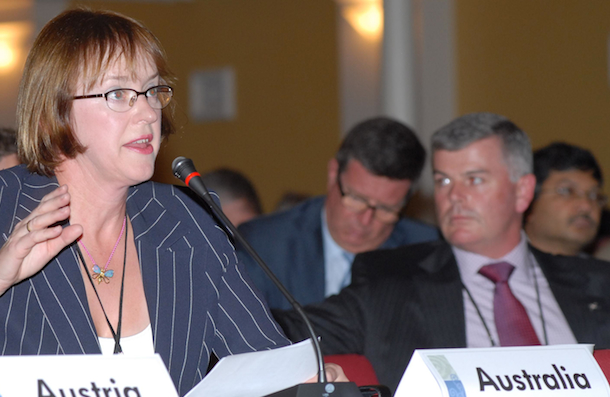Australia’s long-awaited ratification of the Convention on Cluster Munitions came a step closer on Tuesday, 21 August 2012, when the Senate approved legislation to implement the convention. The Criminal Code Amendment (Cluster Munitions Prohibition) Bill 2010 passed the Senate by a vote of 29 to 10 and is expected to be signed into law shortly. Then Australia will deposit its instrument of ratification to the Convention on Cluster Munitions with the United Nations in New York, possibly in advance of the convention’s Third Meeting of States Parties, which opens in Oslo, Norway on 11 September 2012.
The achievement is bitter for campaigners, however, as Australia’s status as a State Party rests on a loophole-ridden implementation law, which permits foreign transit and stockpiling of cluster munitions on Australian territory, allows Australians to assist in the use of cluster munitions, and fails to prohibit investments in the production of cluster munitions.
The legislation was introduced two years ago by the government (Labour) and supported by the main opposition party (Liberals), while the Green Party of Australia and independent Senator Nick Xenophon opposed its adoption without amendments to strengthen and clarify key sections. During Senate deliberation on the Bill, Greens Senator Scott Ludlam proposed a series of amendments to address concerns, but none were accepted due to the support of the major parties.
After the legislation was adopted, the government issued a statement declaring that “the Australian Government will not approve the stockpiling of cluster munitions in Australia by foreign governments,” despite the explicit permission provided by the legislation. Human Rights Watch has called on Australia to make clear that it will “not knowingly assist with the use of cluster munitions.”
There is no question that Australia will be an active and constructive State Party to the convention as it is in other humanitarian disarmament frameworks, such as the Mine Ban Treaty. Still, the implementing legislation sets a poor precedent that other nations, such as Canada, may follow.
The challenge now is two-fold: 1. Ensure that the bad example set by the Australian law is not repeated elsewhere; and 2. Be vigilant in ensuring that Australia acts properly and in compliance with the Convention on Cluster Munitions, despite its legislation permitting it to do otherwise.
Photo: Ambassador Caroline Millar represented Australia during the Oslo Process that resulted in the 2008 adoption of the Convention on Cluster Munitions. (c) John Rodsted, Wellington, February 2008


Leave a Reply